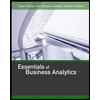Break-even analysis To be profitable, a firm must recover its costs. These costs include both its fixed and its variable costs. One way that a firm evaluates at what stage it would recover the invested costs is to calculate how many units or how much in dollar sales is necessary for the firm to earn a profit. Consider the case of Dynamic Defenses Corporation: Dynamic Defenses Corporation is considering a project that will have fixed costs of $12,000,000. The product will be sold for $32.50 per unit, and will incur a variable cost of $10.75 per unit. 1) Given Dynamic Defenses’s cost structure, it will have to sell (551,724/330,769/116,012/314,199) units to break even on this project (QBE). 2) Dynamic Defenses Corporation’s marketing sales director doesn’t think that the market for the firm’s goods is big enough to sell enough units to make the company’s target operating profit of $25,000,000. In fact, she believes that the firm will be able to sell only about 200,000 units. However, she also thinks the demand for Dynamic Defenses Corporation’s product is relatively inelastic, so the firm can increase the sale price. Assuming that the firm can sell 200,000 units, what price must it set to meet the CFO’s EBIT goal of $25,000,000? a $195.75 per unit b $225.11 per unit c $205.54 per unit d $244.69 per unit What affects the firm’s operating break-even point? Several factors affect a firm’s operating break-even point. Based on the scenarios described in the following table, indicate whether these factors would increase, decrease, or leave unchanged a firm’s break-even quantity—assuming that only the listed factor changes and all other relevant factors remain constant. 3) Increase Decrease No Change The variable cost per unit decreases. The firm depreciates its fixed assets more quickly over a shorter life. The amount of debt increases, causing the firm’s total interest expense to increase.
Cost-Volume-Profit Analysis
Cost Volume Profit (CVP) analysis is a cost accounting method that analyses the effect of fluctuating cost and volume on the operating profit. Also known as break-even analysis, CVP determines the break-even point for varying volumes of sales and cost structures. This information helps the managers make economic decisions on a short-term basis. CVP analysis is based on many assumptions. Sales price, variable costs, and fixed costs per unit are assumed to be constant. The analysis also assumes that all units produced are sold and costs get impacted due to changes in activities. All costs incurred by the company like administrative, manufacturing, and selling costs are identified as either fixed or variable.
Marginal Costing
Marginal cost is defined as the change in the total cost which takes place when one additional unit of a product is manufactured. The marginal cost is influenced only by the variations which generally occur in the variable costs because the fixed costs remain the same irrespective of the output produced. The concept of marginal cost is used for product pricing when the customers want the lowest possible price for a certain number of orders. There is no accounting entry for marginal cost and it is only used by the management for taking effective decisions.
Break-even analysis
|
|
Increase
|
Decrease
|
No Change
|
|
|---|---|---|---|---|
| The variable cost per unit decreases. |
|
|
|
|
| The firm |
|
|
|
|
| The amount of debt increases, causing the firm’s total interest expense to increase. |
|
|
|
Trending now
This is a popular solution!
Step by step
Solved in 3 steps








